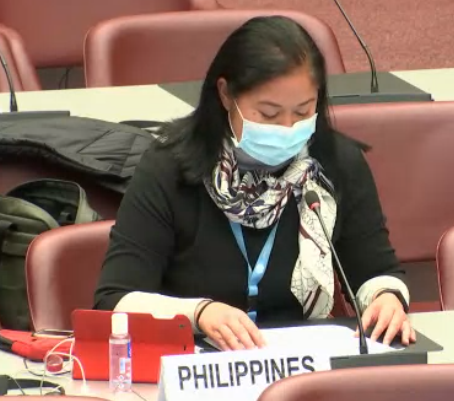International migration council elects first Filipino chair

25 November 2020 Wednesday, Geneva, Switzerland – Ambassador Evan P. Garcia was elected Chair of the Council Bureau of the International Organization on Migration (IOM) during the opening of its 111st session yesterday.
The Council is the highest governing authority of the UN’s migration agency responsible in charge of determining, reviewing, examining, and approving the programs of the IOM. It is holding its annual session virtually this week.
Ambassador Garcia, Philippine Permanent Representative to the United Nations and Other International Organizations in Geneva, will head the Council until November 2021. He is the first Filipino to serve in this capacity. Prior to his election yesterday, the Philippine envoy served as the Council’s rapporteur from 2017 to 2018, second vice president from 2018 to 2019, and first vice president from 2019 to 2020. Ambassador Garcia assumed this new responsibility following the one-year stint of Ambassador Morten Jespersen of Denmark as IOM Council Chair.
The IOM helps ensure the orderly and humane management of migration, promotes international cooperation on migration issues, assists in finding practical solutions to migration problems, and provides humanitarian assistance to migrants in need. The Philippines joined the organization in 1988 and hosts one of its Global Administrative Center in Manila.
At this week’s Council session, the Philippines in its national capacity renewed its commitment to strengthening global migration governance and advancing the rights and promoting the welfare of migrants.

The Philippine delegate to the meeting, Minister Maria Elena Cristina D. Maningat, highlighted that the “Philippines’ engagement on global migration governance is informed by over four decades of practice and experience to bring coherence to national, bilateral and multilateral migration governance”.
The Philippines also called for a stronger global consensus to frame human mobility in the context of human rights and social protection and to strengthen common understandings on shared responsibilities, including through sustained climate action.
END
